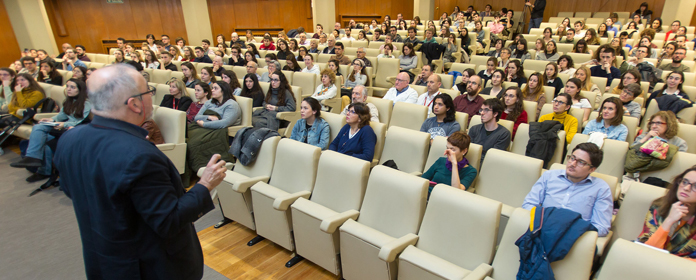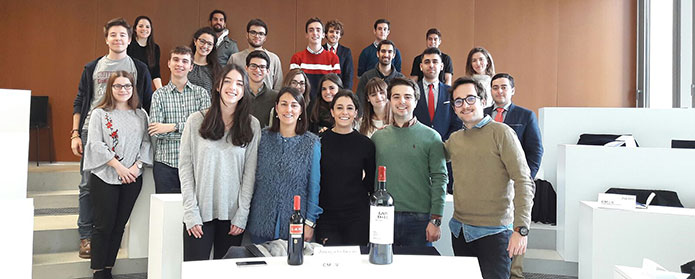20030905La Dra. María Seguí-Gómez previene del peligro de "presentar problemas de salud como epidemias cuando no lo son"
Dr. María Seguí-Gómez warns of the danger of "presenting health problems as epidemics when they are not".
The University professor believes that "the mass communication of epidemiological information, well transmitted, has no dangers".
María Seguí-Gómez, professor of Preventive Medicine and Public Health at the University of Navarra, warned of the danger of "presenting health problems as epidemics when in fact they are not". According to her, "this can cause us to lose sight of what the real health problems in society are". This expert was speaking at the course "Law 41/2002 and the implementation of patients' rights", part of the regional government's program "For the knowledge society".
In his opinion, "the mass communication of epidemiological information, if well transmitted, is not dangerous. The danger arises when a panic crisis is created, a false alarm in the population". Above all, because of the influence it can have "on the decision making of the political class regarding the financing of research projects, etc.".
The specialist added that "not all epidemics are reported and not all epidemics that are reported are epidemics. There are many health problems and risk factors that are hardly talked about". For example, he cited suicides, which account for thousands of deaths a year: "When a new health problem appears, we forget that there are others that are perhaps much more important". In this regard, he also mentioned the bioterrorism crisis in the United States: "The chance of one person dying from anthrax is one in 60 million. And it is illogical that because of the panic crisis created, the areas of research are being modified in that country".
In his opinion, certain media are not the only ones responsible for this erroneous transmission, "although they have a great capacity to generate opinion". There are also other channels for transmitting epidemiological information, such as the healthcare professionals themselves, the authorities and the regulations and laws themselves. In this sense, he pointed out that "the opportunity to offer epidemiological information through legislation is wasted, which would have a tremendous impact". Likewise, he praised the fact that the new Law 41/2002, which regulates patients' rights, "formulates the obligation to provide information for the research of public health problems". In his opinion, "this shows that community health prevails over individual health".
Define by law rights and obligationsThe course also included the participation of Vice President Ángel José Gómez Montoro. This professor at Constitutional Law pointed out that this law "aims to define the rights and obligations of all those involved in healthcare services: patients, users and professionals, but also healthcare centers and services, both public and private, in particularly sensitive areas such as patient autonomy, information, the so-called "prior instructions" or clinical documentation". According to him, "it provides an adequate response to hitherto controversial issues and, at the same time, it ensures the patient's capacity for self-determination and provides legal certainty for doctors and all those involved in the healthcare attendance ".
He also stressed that the regional legislations must now adapt to this new law and highlighted "the speed with which this adaptation has been carried out in Navarre, since on April 4 the Parliament approved Regional Law 29/2003, which partially modifies Law 41/2002 on the rights of patients to advance directives, information and clinical documentation".


